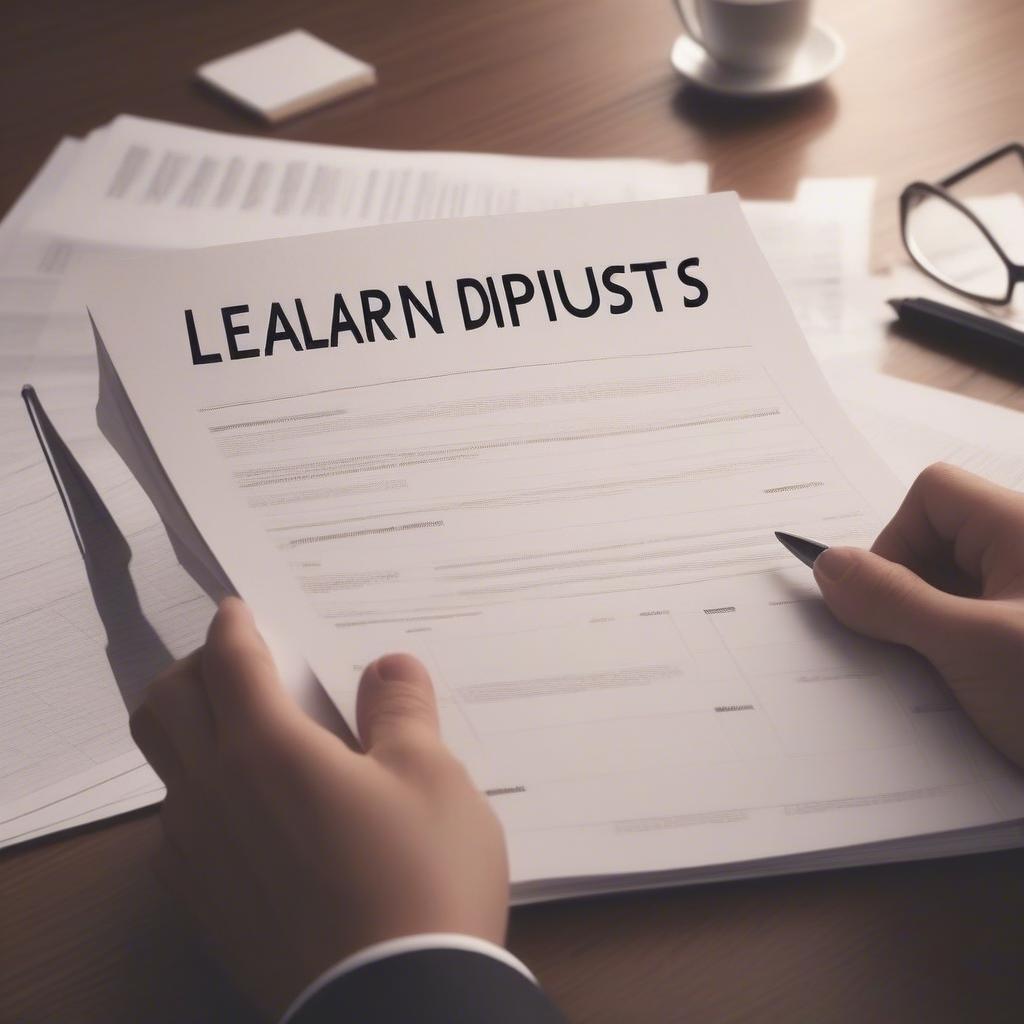
Planning an event, whether it’s a small community gathering or a massive music festival, is exciting. You’re creating an experience, a memory, a moment in time. But amidst the excitement, it’s crucial not to overlook the often-unseen foundation of any successful event: regulatory compliance. Navigating local regulations for events can feel like wading through a bureaucratic swamp, but failing to do so can lead to hefty fines, event shutdowns, and irreparable damage to your reputation. This comprehensive guide breaks down how to stay compliant, ensuring your event is not only memorable but also legally sound.
Why is Regulatory Compliance Critical for Event Planning?
Understanding why regulatory compliance is vital is the first step in approaching it effectively. It’s not just about avoiding penalties; it’s about protecting attendees, ensuring public safety, and contributing to the well-being of the community. Let’s delve into the core reasons:
-
Public Safety & Welfare: Regulations are often in place to ensure the safety of attendees and the general public. Fire codes, crowd management rules, and health regulations are designed to prevent accidents and minimize risks. Think of it as a safety net, protecting everyone involved.
-
Legal Protection: Compliance shields you from potential lawsuits and legal liabilities. If an incident occurs during your event, demonstrating that you followed all applicable regulations will significantly strengthen your defense.
-
Reputational Integrity: A compliant event reflects well on your organization and builds trust with the community. A single violation can tarnish your reputation and make it difficult to secure permits for future events.
-
Sustainable Operations: Adhering to environmental regulations, like waste management and noise control, ensures your event is sustainable and minimizes its impact on the surrounding environment. This resonates with attendees who are increasingly conscious of environmental issues.
-
Community Relations: Compliance shows respect for the local community and fosters positive relationships with residents and businesses. This can lead to smoother operations, greater support for your event, and easier access to future permits.
The Event Planning Regulatory Compliance Landscape: A Deep Dive
Navigating the regulatory landscape requires a proactive and thorough approach. It’s not a one-size-fits-all situation; regulations vary significantly depending on location, event type, and attendance size.
1. Identify Applicable Regulations: Your Starting Point
The first step is identifying which regulations apply to your specific event. This involves researching local ordinances, state laws, and sometimes even federal regulations.
-
Local Ordinances: Contact your city or county government to inquire about relevant ordinances related to event planning. This includes zoning laws, noise ordinances, permit requirements, and alcohol licensing regulations.
-
State Laws: Consult your state’s official website or government agencies to understand state-level regulations regarding events, such as health and safety codes, fire safety regulations, and environmental laws.
-
Federal Regulations: For large-scale events or those involving interstate commerce, federal regulations may apply. This could include regulations from agencies like the Occupational Safety and Health Administration (OSHA) or the Environmental Protection Agency (EPA).
-
Consult Legal Counsel: Consider engaging an attorney specializing in event planning and regulatory compliance. They can provide expert guidance and ensure you’re not missing any crucial requirements.
Example: A music festival in a park might require permits for noise levels, alcohol sales, food vendors, camping, and traffic control, along with adherence to fire safety regulations and emergency medical services protocols.
2. Key Regulatory Areas to Consider
Here are some of the most common regulatory areas that event planners need to address:
-
Permitting & Licensing: This is often the most time-consuming aspect of compliance. Ensure you obtain all necessary permits and licenses well in advance of the event. This includes:
- Event Permit: The fundamental permit allowing you to hold the event.
- Alcohol Permit: Required for serving or selling alcohol.
- Food Vendor Permit: Required for any food vendors participating in the event.
- Noise Permit: Required for events that may exceed noise level limits.
- Building Permit: May be required for temporary structures like tents or stages.
- Fire Safety Permit: Ensures compliance with fire safety regulations.
-
Zoning Regulations: Understand the zoning restrictions of your event location. Some areas may be unsuitable for certain types of events due to noise levels, traffic congestion, or environmental concerns.
-
Health & Safety Regulations: These regulations focus on protecting the health and safety of attendees. This includes:
- Food Safety: Ensuring food vendors comply with food safety standards and proper hygiene practices.
- Sanitation: Providing adequate restroom facilities and waste disposal services.
- Emergency Medical Services: Having trained medical personnel on-site to handle emergencies.
- Crowd Management: Implementing strategies to manage crowds safely and prevent overcrowding.
-
Fire Safety Regulations: Fire safety is paramount. Ensure compliance with fire codes, including:
- Fire Extinguishers: Providing adequate fire extinguishers and ensuring they are properly maintained.
- Emergency Exits: Clearly marking emergency exits and ensuring they are unobstructed.
- Flammable Materials: Properly storing and handling flammable materials.
-
Accessibility Regulations: Ensure your event is accessible to people with disabilities, complying with the Americans with Disabilities Act (ADA). This includes:
- Accessible Entrances: Providing accessible entrances and pathways.
- Accessible Restrooms: Providing accessible restroom facilities.
- Assistive Listening Devices: Providing assistive listening devices for attendees with hearing impairments.
-
Environmental Regulations: Minimize the environmental impact of your event. This includes:
- Waste Management: Implementing a comprehensive waste management plan, including recycling and composting.
- Noise Control: Adhering to noise level limits and minimizing noise pollution.
- Water Conservation: Implementing water conservation measures.
-
Security Regulations: Ensure the safety and security of attendees and staff. This includes:
- Security Personnel: Hiring trained security personnel to manage crowds and prevent crime.
- Security Screening: Implementing security screening procedures to prevent weapons or prohibited items from entering the event.
- Emergency Response Plan: Developing an emergency response plan to address potential security threats.
3. Practical Strategies for Achieving Compliance
-
Create a Regulatory Checklist: Develop a comprehensive checklist based on your event’s specifics and the regulations you’ve identified. This checklist will serve as your roadmap for achieving compliance.
-
Engage with Local Authorities Early: Don’t wait until the last minute to engage with local authorities. Schedule meetings with relevant departments to discuss your event plans and address any concerns.
-
Document Everything: Maintain meticulous records of all permits, licenses, inspections, and communications with regulatory agencies. This documentation will be crucial in demonstrating your compliance efforts.
-
Train Your Staff: Ensure your staff is well-trained on all relevant regulations and procedures. This includes training on fire safety, crowd management, and emergency response.
-
Conduct Regular Inspections: Conduct regular inspections of your event site to identify and address any potential compliance issues.
-
Develop an Emergency Response Plan: Create a detailed emergency response plan that addresses potential emergencies, such as medical emergencies, fire emergencies, and security threats.
-
Obtain Insurance Coverage: Secure adequate insurance coverage to protect yourself from potential liabilities. This includes general liability insurance, event cancellation insurance, and liquor liability insurance.
-
Utilize Technology: Leverage technology to streamline compliance efforts. There are software solutions available that can help you manage permits, track inspections, and monitor compliance with regulations.
Template Example: Event Regulatory Compliance Checklist
| Regulation Area | Specific Requirement | Compliance Status (Yes/No/In Progress) | Notes | Responsible Party | Deadline |
|---|---|---|---|---|---|
| Event Permit | Obtain event permit from the city council | Include application number and contact person at the city council | Event Manager | MM/DD/YYYY | |
| Alcohol Permit | Secure alcohol permit from the state liquor control board | License number and expiration date. | Bar Manager | MM/DD/YYYY | |
| Fire Safety | Ensure adequate fire extinguishers are in place | Number of extinguishers, type, and last inspection date. | Safety Officer | MM/DD/YYYY | |
| Accessibility | Provide accessible restrooms | Number of accessible stalls and location. | Facilities Manager | MM/DD/YYYY | |
| Waste Management | Contract with a waste management company | Name of company and schedule of waste removal. Include plan of waste removal | Operations Manager | MM/DD/YYYY | |
| Noise Ordinance | Adhere to noise level limits | Record the noise levels during sound check and ensure the noise level is within acceptable limits. | Sound Engineer | Event Day | |
| Emergency Response Plan | Ensure a comprehensive emergency response plan | Include evacuation routes, emergency contact numbers, and procedures for handling various emergencies. | Security Lead | MM/DD/YYYY |
Tip: Use a digital version of this checklist (e.g., in a spreadsheet or project management software) to track progress and assign responsibilities.
4. Common Mistakes to Avoid in Event Planning and Regulatory Compliance
Even experienced event planners can make mistakes that lead to compliance issues. Here are some common pitfalls to avoid:
-
Ignoring Local Regulations: This is perhaps the most fundamental mistake. Failing to research and understand local regulations can result in significant penalties and event shutdowns.
-
Procrastinating on Permit Applications: Permit applications can take time to process. Starting the process late can jeopardize your ability to obtain the necessary permits before your event.
-
Failing to Communicate with Local Authorities: Maintaining open communication with local authorities is crucial. Ignoring their concerns or failing to respond to their inquiries can lead to compliance issues.
-
Underestimating Crowd Size: Accurate crowd estimation is essential for ensuring adequate security, sanitation, and emergency services. Underestimating crowd size can lead to overcrowding and safety hazards.
-
Neglecting Accessibility Requirements: Overlooking accessibility requirements can lead to discrimination lawsuits and damage your reputation.
-
Ignoring Environmental Regulations: Failing to minimize the environmental impact of your event can result in fines and damage your reputation.
-
Lack of Staff Training: Insufficient staff training on relevant regulations and procedures can lead to compliance violations.
-
Inadequate Insurance Coverage: Insufficient insurance coverage can leave you vulnerable to significant financial losses in the event of an accident or injury.
5. Staying Updated with Evolving Regulations
Regulatory landscapes are constantly evolving. Staying informed about changes is essential for maintaining compliance.
-
Subscribe to Industry Newsletters: Subscribe to newsletters from event planning organizations and regulatory agencies to stay updated on industry trends and regulatory changes.
-
Attend Industry Conferences: Attend industry conferences and workshops to learn about best practices and emerging trends in regulatory compliance.
-
Network with Other Event Planners: Network with other event planners to share information and learn from their experiences.
-
Regularly Review Your Compliance Plan: Review your compliance plan regularly to ensure it reflects the latest regulations and best practices.
Case Studies: Learning from Successes and Failures
Examining real-world examples can provide valuable insights into the importance of regulatory compliance.
Success Story: A local community festival diligently worked with city officials to secure all necessary permits, including those for street closures, amplified music, and food vendors. They proactively addressed concerns about noise levels and traffic flow, resulting in a smooth and successful event that was well-received by the community.
Failure Story: A music festival failed to obtain the required permits for operating in a specific zone. It was later discovered to be unsafe for large crowds. The event faced significant fines and had to be shut down prematurely, leading to financial losses and reputational damage. This shows that ignorance is no excuse when it comes to regulatory compliance in event planning.
The Role of Technology in Regulatory Compliance
Technology can be a powerful tool in managing regulatory compliance.
-
Permit Tracking Software: Software solutions can help you track permit applications, deadlines, and renewal dates.
-
Inspection Management Software: Software can help you schedule and track inspections, ensuring compliance with safety and health regulations.
-
Crowd Management Software: Software can help you monitor crowd density and manage crowd flow, preventing overcrowding and ensuring safety.
-
Environmental Monitoring Software: Software can help you monitor noise levels, air quality, and water usage, ensuring compliance with environmental regulations.
Learn Business: Your Partner in Event Planning Success
At Learn Business, we understand the challenges of starting and running a successful event planning business, especially when it comes to regulatory compliance. That’s why we offer guidance and templates specifically tailored to the needs of event planners.
How Learn Business Supports You:
-
Business Plan Templates: Our comprehensive business plan templates include sections dedicated to regulatory compliance, helping you develop a proactive strategy for staying compliant.
-
Legal Document Templates: Access legally sound contract templates for vendors, sponsors, and venues, ensuring you’re protected from potential liabilities.
-
Compliance Checklists: Download ready-to-use compliance checklists tailored to different types of events, saving you time and effort.
-
Expert Guidance: Connect with experienced event planning consultants who can provide personalized guidance on regulatory compliance and other aspects of your business.
-
Training Resources: Access training materials and webinars on key regulatory topics, ensuring you and your team are well-informed.
Learn Business is your partner in navigating the complexities of event planning, providing the resources and support you need to achieve regulatory compliance and build a thriving business.
Final Thoughts: Compliance is an Investment, Not an Obstacle
While regulatory compliance may seem daunting, viewing it as an investment rather than an obstacle is key to success. By prioritizing compliance, you’re not just avoiding penalties; you’re protecting your attendees, safeguarding your reputation, and building a sustainable business. So, embrace the challenge, do your research, and create events that are not only memorable but also legally sound and ethically responsible. Your dedication to compliance will ultimately contribute to the success and longevity of your event planning business. Remember that diligent regulatory compliance protects everyone involved in event planning, and ignorance of these issues is not a plausible defense in the courtroom. Event planning requires a serious commitment to regulatory compliance, and this serious commitment should be reflected in your regulatory compliance.



Leave a Reply